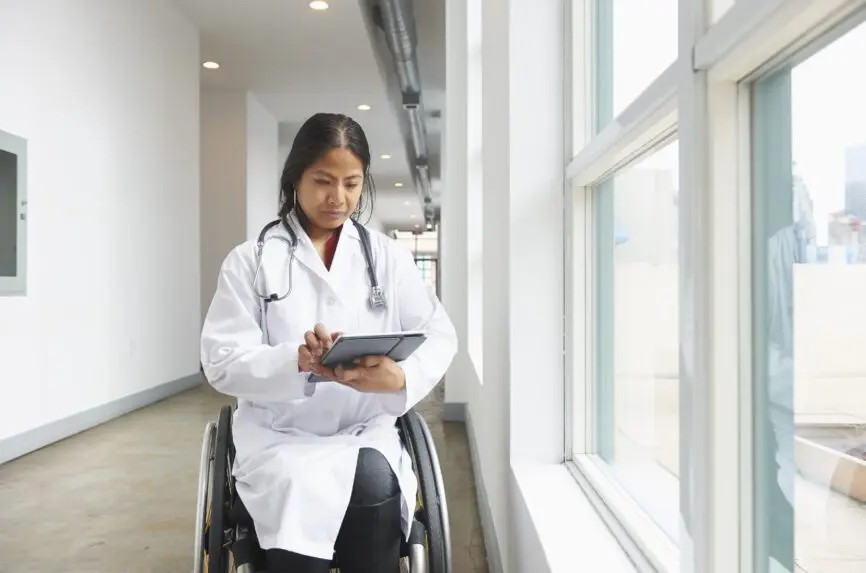Hastings Center News
Anti-Ableist Medical Education: Meeting the Challenges
Despite increasing attention to the harms of ableism in health care and among health care providers, few institutions have made significant changes to the ways medical students and trainees are taught to think about disability and provide care to patients with disabilities. But given the well-documented health disparities, barriers to access, and discrimination that disabled people face while interfacing with the U.S. health care system, institutions of medical education have an ethical imperative to equip professionals-in-training with the tools to recognize and seek to prevent those harms.
A new Hastings Center issue brief offers strategic recommendations for medical educators and institutions to pursue in developing a more disability-conscious curriculum. The issue brief is the product of a Hastings Center project that involved conversations with expert advisors including medical educators, disability advocates, disability study scholars, leaders of professional organizations, and disabled medical students and trainees. The project was led by Liz Bowen, an assistant professor of bioethics and humanities at Upstate Medical University and a Hastings Center presidential scholar, and Erik Parens, a Hastings Center senior research scholar, with the support of the Josiah Macy Jr. Foundation.
The recommendations are “for any medical educator who recognizes a need to address ableism in their program but is unsure what might be possible or is facing common roadblocks.” They outline a set of fundamental goals for educators and institutions to pursue in developing a more disability-conscious curriculum, identify some of the most common challenges that arise in the pursuit of each goal, and offer strategies for meeting those challenges.
These strategies might be used by faculty, administrators, curriculum committees, or other interested institutional groups.
Read the issue brief, “Anti-Ableist Medical Education: Meeting the Challenges.”

